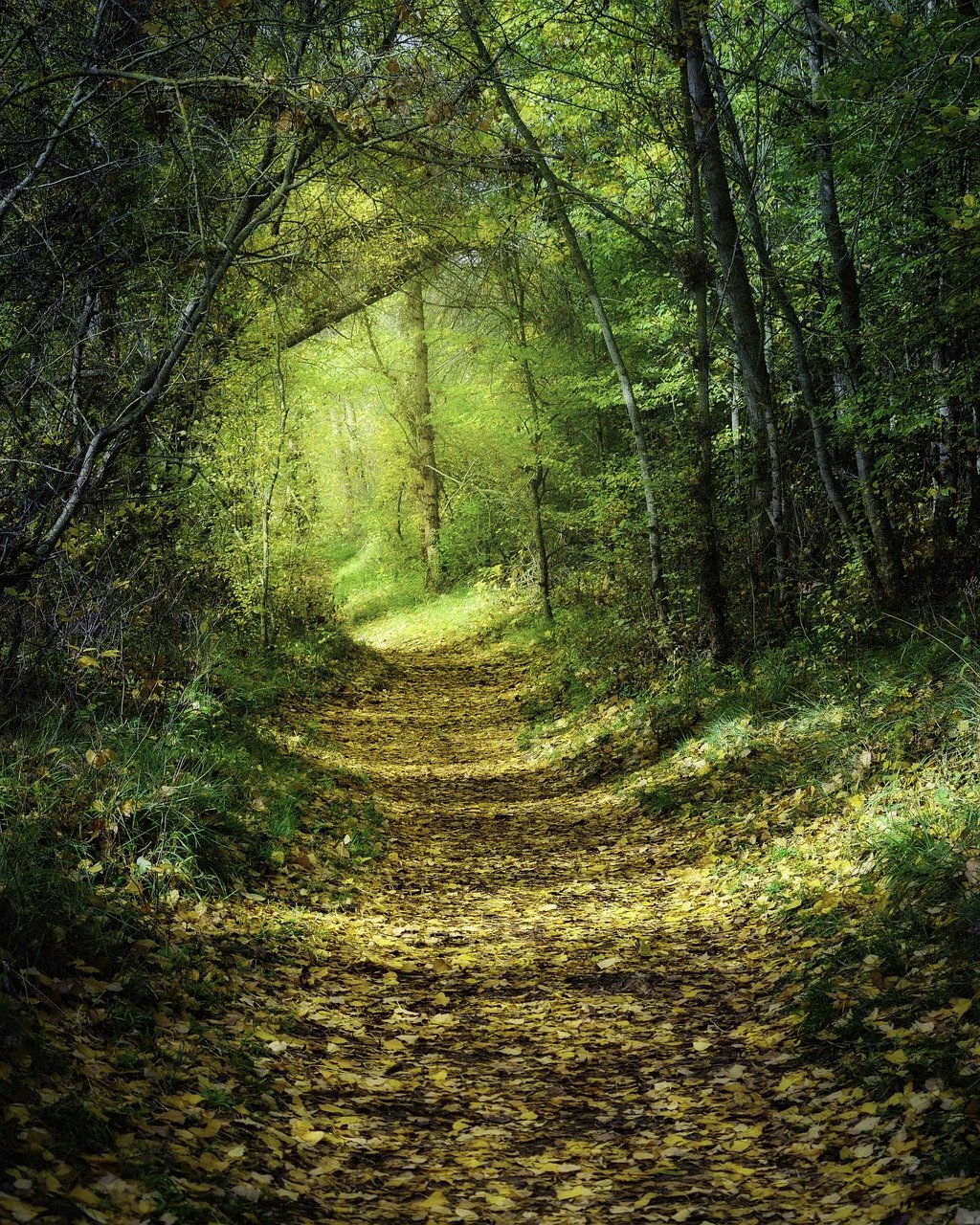
Canto 1: How Dark Was the Wood
In my January 27th post, Lost and Afraid in Dante’s Wood, I proposed that rather than interpreting the woods as Dante’s sinful life, we should see the forest as the fallen world in which Dante lived. In that article, I discussed how the dangers of the forest are metaphors for the spiritual threats we all face in life’s journey. This article explores the darkness of that wood.

Canto 1: Lost and Afraid in Dante’s Wood
This past May, I was fortunate enough to walk the Camino de Santiago. One morning, I headed out a couple of hours before dawn, hoping to reach my destination before the sun became too strong. There was no moon, so it was very dark. If there were any stars, I could not see them through the canopy formed by the trees. Although I had a headlamp, walking through an inky black forest was unnerving. I worried about what might be hiding in a clump of bushes farther up the path. Worse yet, what was behind me? I started to sing, hoping to frighten anything that might be nearby. Then I wondered, would I be scaring off potential predators or simply telling them where to find their breakfast? Although sitting in my comfortable, well-lit library, I can now laugh, I was more flustered than I care to admit.
The experience made real to me the confusion and fear Dante must have felt in Canto 1 of the Inferno. I, like Dante, was a pilgrim alone in a dark wood. Even as I say this, I feel the comparison is unfair to Signore Alighieri. Dante was lost and in the dark. He did not have a GPS to guide his steps or a rechargeable LED headlamp to light his path. Yet, even with these advantages, I was still apprehensive. It was not my best morning on the Camino.

Dante: Pilgrimage, Purgatory, and Instant Pudding
Today, May 9, 2022, I begin my pilgrimage in Saint Jean Pied de Port with the intent of walking the approximately 476 miles to Santiago. A pilgrimage. Me, the agnostic. What am I nuts? Over the past few weeks, I have been asking myself what on earth possessed me to make such a commitment.

Canto 1: The Journey
Many have long described The Divine Comedy as the greatest work of Western literature. This acclaim is due, in part, to Dante making his journey from bondage to freedom personal to his readers. His poem reaches out and pulls us into the experience of his spiritual enlightenment.
Dante begins by telling us, “Midway in our life’s journey / I awoke to find myself lost in a dark wood.” The tension created between “our life’s journey” and “I awoke” is a subject of a great deal of speculation. What was the authorial intent? Why didn’t Dante simply write in the middle of my life’s journey, I awoke? We might brush off this conflict as sloppy writing, that Dante had intended no deeper meaning here, but I believe this would be a mistake. While I cannot say with any absolute authority what Dante had intended, I think there is a purpose in his choice of words. And, that purpose is an example of how Dante draws us into the poem from the very start.
Canto 1: Midway On The Journey
Midway upon the journey of our life / I found myself within a forest dark / For the straightforward pathway had been lost. These first three lines to The Divine Comedy are so well known that even many who have never read it know them. However, I have discovered that the deeper meaning of things that are well known often escapes us. Such is the case with these opening lines.
In one Dante class, the students who were in their late teens and early twenties wrote these lines off as Dante having a midlife crisis without much further consideration. There it was, a tidy little package all wrapped and labeled. Let’s move on to the good stuff of seeing people tortured in hell. I must admit that the first time I read The Divine Comedy, I did the same thing, missing the entire setup to the poem. I did not repeat the error in subsequent readings later in life.